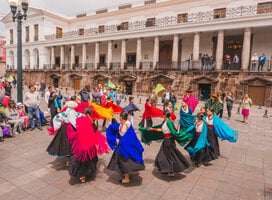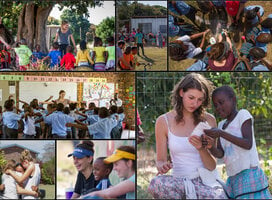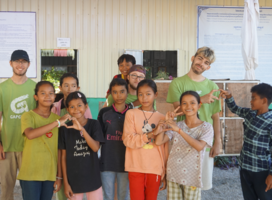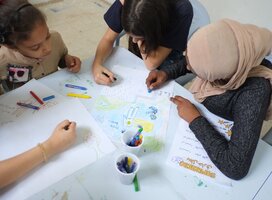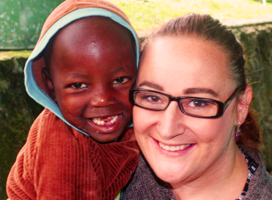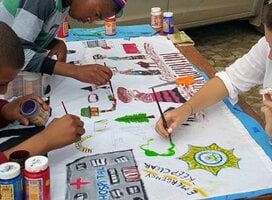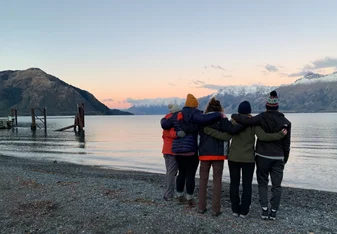Music Volunteer Abroad Programs
Do you want to make the world a better place? If you're reading this, we're guessing you do. There are so many ways to make the world better: teaching, volunteering, being an activist, standing up for human rights, trying to be resourceful and less wasteful, practicing compassion, the list is endless.
One thing that sometimes gets overlooked is music. Music has the ability to heal, change, and prompt people to stand up for causes, and it has the undeniable ability to connect and bring people together.
Volunteering aboard with music will not only allow you to positively influence lives wherever you bring it, but you can also learn about a variety of musical styles and genres, as well as about the deep and fascinating histories that these countries have with music. Even if you're struggling to speak the local language, you'll still be able to communicate in a language that's spoken in every corner of the world: music.
Music Lessons
This can be as straightforward as providing lessons to children and youth. Volunteers may either end up teaching an instrument in one-on-one or group settings, depending on the program and number of children. Sometimes group lessons aren’t possible as there are not enough instruments for every child.
Teaching music lessons offers a fun, stress-free way of interacting with children, and it also teaches them other skills, like English, while learning an instrument. Depending on your knowledge, lessons could also include musical theory.
Administration
Bands, musicians, and artists in other countries may not have the finances necessary to play music, create music, or go on tour. Having these abilities allows for creative expression, brings music to music lovers, and creates a platform to promote social and environmental change.
Volunteers can help musicians with administration, doing things like helping with fundraising or providing knowledge about the music industry in general and how to navigate it successfully. Volunteers can also help with the creation or overseeing of festivals and music events, or some programs have volunteers work with local music schools to prepare costumes and design sets. The options to work "behind the scenes" are numerous.
Musical Therapy
Music is therapy in and of itself. It provides a world of comfort to those who use it, helping people all around the world deal with everyday struggles. It’s one of the safest ways of dealing with hardships. Although some people go to school to become music therapists and end up treating children and adults with a variety of disorders, anyone who plays an instrument can provide music therapy, so to speak.
While there may be specific programs shaped around playing music for the purpose of healing, other programs may simply incorporate music into their work. The simple act of playing an instrument can bring endless joy into the lives of those listening, and it can also bring music to environments where it wouldn’t normally exist.
Dance & Theatre
Music is an important part of dance too, and they often go hand in hand -- think of Flamenco and the Spanish guitar, or Samba music and Samba dance. Dance, as well as music, allows children to express themselves in new and creative ways that they perhaps were unaware of before. Dance acts as an outlet to express frustration and other emotions in a safe and productive way, and it teaches children to cope with problems through creativity.
There are volunteer opportunities in many parts of the world that focus specifically on music. If you’re unable to find a music volunteer program in your preferred country, consider looking at other overarching volunteer programs that may feature a musical component. Wherever you choose to go, your songs will hopefully bring new meaning to those who hear them.
Costa Rica
Environmental conservation, youth development, and teaching English are common volunteer programs in Costa Rica, some of which may feature music. However, there are specific volunteer programs for music, too. The power of music is far reaching, and has the ability to change marginalized communities. Not only does music heal its listeners, but it gives musicians a voice, which creates a platform for which the most pressing social and environmental issues of our time can be addressed.
Volunteering in a music program is often a learning experience for both volunteer and participant, where you’ll both directly and indirectly learn about cultural similarities and differences. One great thing about teaching music to children is not only does music provide them with a precious and resourceful tool, but it also helps kids learn English at the same time.
Kenya
Kenya is a great destination for volunteering in a music program. As a developing country, there is much need for volunteers in many areas, including medical work, working with children, humanitarian work, and building projects, but there is always a need for volunteers for music programs, which sometimes go overlooked, due to the dire need in other areas.
Note by note, you can change the lives of those who are struggling, children and adults alike, as music plays a big role in East African societies. As a volunteer, you may help with the administration of local music groups to help grow the local music scene, you may help organize community outreach performances, or you might end up teaching guitar (or any other instrument) lessons to eager students.
Peru
From the shores of the Pacific Ocean, over the gigantic Andes mountain range, around ancient ruins and lost civilizations, and into the Amazon jungle, Peru is a wildly beautiful and ecologically diverse country. There’s a great need for skillful volunteers in Peru in areas such as environmental conservation, community development, education, health, and music.
Volunteers in music programs in Peru have the opportunity to keep young people off the streets and out of crime and danger by helping them pick up an instrument. Some music programs help children who live in the slums, teaching them how to play guitar or drums, as well as giving them instruction in basic music theory and vocal training. For these types of programs, a background in music is necessary.
China
Many Chinese children are introduced to music at a very young age and get enrolled in music schools by their parents. However, millions of others are never able to afford the opportunity to learn music or have their own instruments. Beijing is probably the best city in China for music lovers, and it certainly offers many opportunities other than music for volunteers, including teaching English.
When it comes to music, China is a country of new and old -- the country produces larger-than-life pop and rock groups that garner millions of followers, while folk music encompassing traditional instruments remains popular. There a variety of music programs to apply for, ranging from community development projects to teaching music itself. Volunteering with music in China -- and elsewhere in the world -- can be as much of a learning experience for you as it is the the participants.
How to Choose a Music Volunteer Program
This all depends on who you are and what you want to achieve, and to a lesser extent your financial status and your ability to travel to specific regions. Do you want to teach an instrument or teach music theory? Do you want to help with community development? Do you want to play music for people while inspiring them and providing comfort? These are some of the questions you might want to ask yourself.
How you choose your program might also depend on your musical taste, and whether you want to volunteer in a region you’re unfamiliar with in order to learn about local traditions or about indigenous musical identity and history. Be sure to consider costs and program length, and clearly understand what’s included and what’s expected of you.
